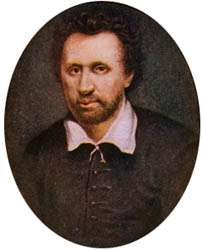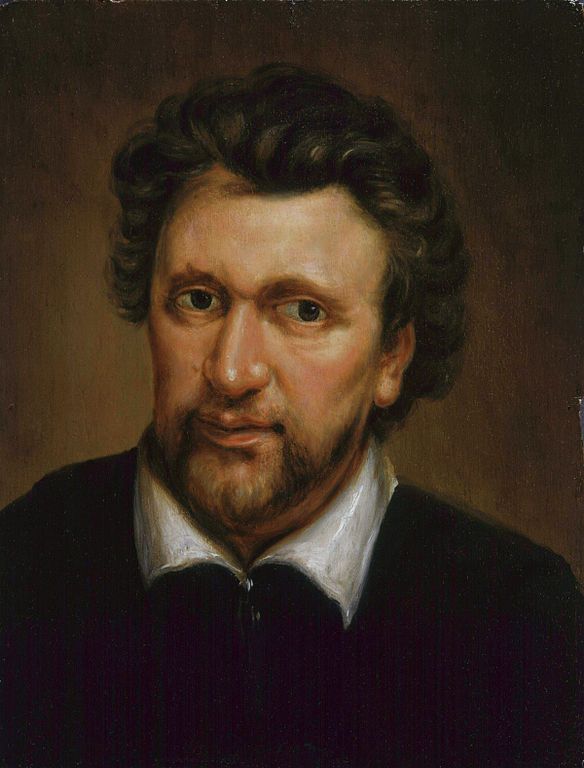Introduction to Ben Jonson
Contents

Ben Jonson is one of the best-known writers and theorists of English Renaissance literature. He competed with Shakespeare for the spotlight his whole life. Jonson was a prolific dramatist and highly proficient in the classics. His role was important in influencing the Augustan age with his emphasis on classical thinkers such as Aristotle, Horace and others.
Jonson is primarily known for his satirical comedies, but he was also a distinguished poet and one of the emergent literary critics during that age. Jonson’s had reputation for vying after the refined taste of the erudite classics as opposed to other works that he believed the public fell for because of the sensational qualities that they possessed. His literary craftsmanship was his greatest legacy and he had a strong dsense of form and control over whatever work he undertook.
Jonson: Early Life, Education and Work
Jonson was born in London shortly after his father passed away. In spite of being poor, he studied at Westminster school under the guiding hand of William Camden, a renowned antiquary. But unfortunately, he was fored to leave his schooling in between by his stepfather to work with him as a bricklayer. After that, he served as a volunteer in the Dutch war against Spain.
After returning to England by 1592, Jonson got married to Anne Lewis in 1594. Their union was an unhappy one and all the children that were born as a result of it all died before Jonson did. Following his marriage, Jonson worked as an actor and wrote numerous ‘get-penny’ entertainments, which were financially motivated and quickly composed plays.
Early Writings and Career
By 1597 Jonson started writing for Philip Henslowe’s theatrical company. That same year, Jonson was asked by Henslowe to finish Thomas Nashe’s satiri play, ‘The Isle of Dogs’, but it was suppressed for alleged seditious content and because of that, Jonson was jailed for a short time. In 1598, his play, ‘Every Man in His Humour’, was produced by the Lord Chamberlain’s Men with William. He became close friends with him soon after that.
Once he made a joke at the King’s expense which landed him in prison. After he was freed, Jonson entered a period of great fortune and literary productivity. He made many influential friends at court, and King James I valued his learning very much.
These abilities of his did not escape the kings eye and because of this he was called upon often to write his popular, elegant masques, for example: ‘The Masque of Blackness’, which he wrote in 1605. This period was the height of his creative productivity and he produced his most successful comedies; Volpone, The Silent Woman, The Alchemist, and Bartholomew Fayre.
In 1616, Jonson published ‘Workes’, and became the first English writer to give his dramas an elite status by terming them as works and for his presumptuous attitude, he was ridiculed. In that same year, he assumed the responsibilities and privileges of ‘Poet Laureate’, although it was without any formal appointment or ceremony.
From the year 1616 to 1625 he mainly wrote masques for the purpose of presentation at court. For his remarkable literary achievements, the University of Oxford presented him with an honorary master of arts degree
A series of unfortunate events marked Jonson’s later years. His library was destroyed in 1623 by a fire. Moreover, when James I died in 1625, Jonson lost a lot of his influence at court. Later that same year, he had the first of several strokes which left him bedridden. Even then, Jonson produced four plays when Charles I was king, and eventually got a new pension in 1634.
Unfortunately, none of these later plays was successful. Jonson spent the rest of his retirement life with study and writing; dying in 1637 and leaving behind a financially drained estate. Even then, he was buried with honor in Westminster Abbey.
Jonson: Satire and Writing
Jonson’s earliest comedies, have influences of the form and structure of Roman comedy. They are particularly noteworthy as the models of a structure known as the comedy of “humours”. In this type of play, each character represents a type which is dominated by a particular obsession.
Even though Jonson was not the first playwright to use the comedy of humours, his expertise with the form in Every Man in His Humour and Every Man out of His Humouris considered to be noteworthy and a prominent feature of his work.
Jonson produced four comical satires between the years 1606 and 1614: Volpone, The Silent Woman, The Alchemist, and Bartholomew Fayre, which were the representation of his perfect use of structure and language. The very last of Jonson’s great plays is the panoramic “Bartholomew Fayre”.
In this work we don’t notice the characteristic didactic tone that Jonson adopts in his earlier works but conveyed the classical moralist’s views with a series of colourful and layered plots and a loosely structured form. In all four comedies, there is a careful plan executed with classical precision, along with an extraordinary command of colloquial speech and wrote more realistic, three-dimensional characters.
Jonson’s later dramas were casually dismissed by John Dryden, who did the first detailed analysis of Jonson’s plays. Dryden’s criticism also gave way to a 200-year comparison between Jonson and Shakespeare, when his observations included a comparison of Jonson and Shakespeare. This comparison was further fueled by 19th-century Romantic critics such as Samuel Taylor Coleridge and William Hazlitt.
T.S. Eliot wrote in 1919 and focused attention on Jonson’s reputation, calling it as “the most deadly kind that can be compelled upon the memory of a great poet. To be universally accepted; to be damned by the praise that quenches all desire to read the book; to be afflicted by the imputation of the virtues which excite the least pleasure; and to be read only by historians and antiquaries—this is the most perfect conspiracy of approval.” These comments brought on a reevaluation of Jonson, whose began to be appreciated on his own terms.
The English critic L.C. Knights said that Jonson was “a very great poet” and Edmund Wilson thought Jonson to be “a great man of letters” and rightly pointed out his influence on writers as diverse and accomplished as Milton, Swift,Huxley, and Congreve. Recent scholarship has persevered to place Jonson in the center of the theatrical and political scenario of London, shining a light on his relationship with his audience and the monarchy.
This eventual focus on historical context apart from just his texts has also produced an emphasis on Jonson’s transformation into a renowned dramatist, critic, and finally the first poet laureate. A lot of critics now hold him in high regards as a fore-runner in classicism in the 17th-century, and moreover his plays are often applauded for their near perfect portrayals of the men and women of his day, their mastery of the structure and form, and their successful paralleling of the serious, the comic, and the timeless.

